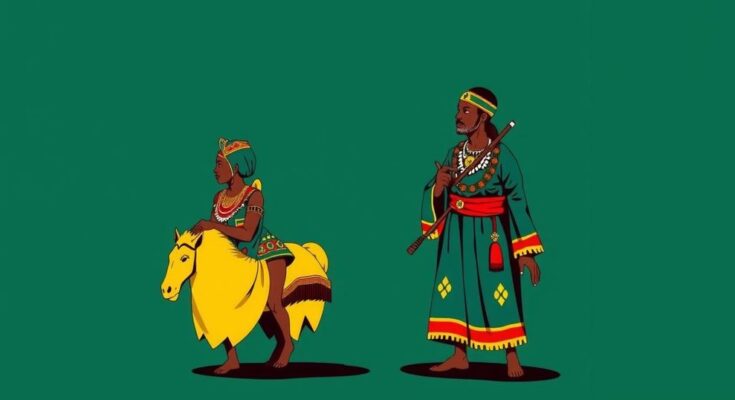CenPOA has expressed concerns over traditional rulers endorsing political candidates, warning that it poses a threat to national unity and is unconstitutional. Executive Director Michael Donyina Mensah highlighted the risks associated with this practice and urged chiefs to avoid political involvement to maintain their authority and societal cohesion, especially ahead of the upcoming elections.
The Centre for Public Opinion and Awareness (CenPOA) has raised concerns regarding the endorsements of political parties and candidates by traditional leaders in Ghana. Michael Donyina Mensah, the Executive Director, pointed out that such endorsements are in contravention of the republic’s constitution. He cautioned that if this trend continues, it may pose significant threats to national unity and stability, especially in light of the upcoming general elections scheduled for December 7.
During an interview with Rainbow Radio 87.5FM, Mr. Mensah underscored the necessity for chiefs to remain apolitical, noting that their involvement in partisan politics undermines their authority and the goodwill of the communities they serve. He expressed dismay over the increasing trend of chieftaincy endorsements, which he labeled as unconstitutional, arguing that such actions can incite further divisions and complicate existing chieftaincy disputes, such as the protracted Bawku conflict.
Drawing comparisons to European monarchies, Mr. Mensah emphasized that many traditional rulers have lost considerable power over time due to the politicization of their roles. He stated, “If we want to move forward at the desired rate, we must first ensure that chieftaincy does not exist in our political space.” He called for an end to endorsements based on tribal or religious affiliations, asserting that such practices compromise national cohesion.
Furthermore, Mr. Mensah warned that if chiefs continue to engage in political endorsement, there could be a backlash from the youth of Ghana, who may question the authority of traditional leadership. He reiterated that it is critical for chiefs to maintain respect for their positions by avoiding political affiliations that can sow discord within society, thereby threatening the overall unity of the nation.
The endorsement of political parties and candidates by traditional rulers in Ghana has sparked a significant debate about the role of chieftaincy in the political arena. The republic’s constitution specifically prohibits such endorsements, aiming to maintain the neutrality and authoritative stance of traditional authorities. As the general elections approach, this issue becomes increasingly pertinent, with concerns that political partisanship among chiefs could destabilize the nation’s unity, especially during a time when political tensions may be heightened. Michael Donyina Mensah’s remarks reflect ongoing worries about the integrity of traditional institutions in the democratic process.
In conclusion, the Centre for Public Opinion and Awareness has highlighted a pressing concern regarding the involvement of traditional chiefs in partisan politics, which contradicts constitutional provisions. Michael Donyina Mensah’s insights echo a broader call for the restoration of neutrality within chieftaincy to foster national unity. The potential repercussions of continued political endorsement by rulers could undermine the trust and authority they hold within their communities, prompting urgent discussions on the role of traditional governance in modern Ghana.
Original Source: www.ghanaweb.com




